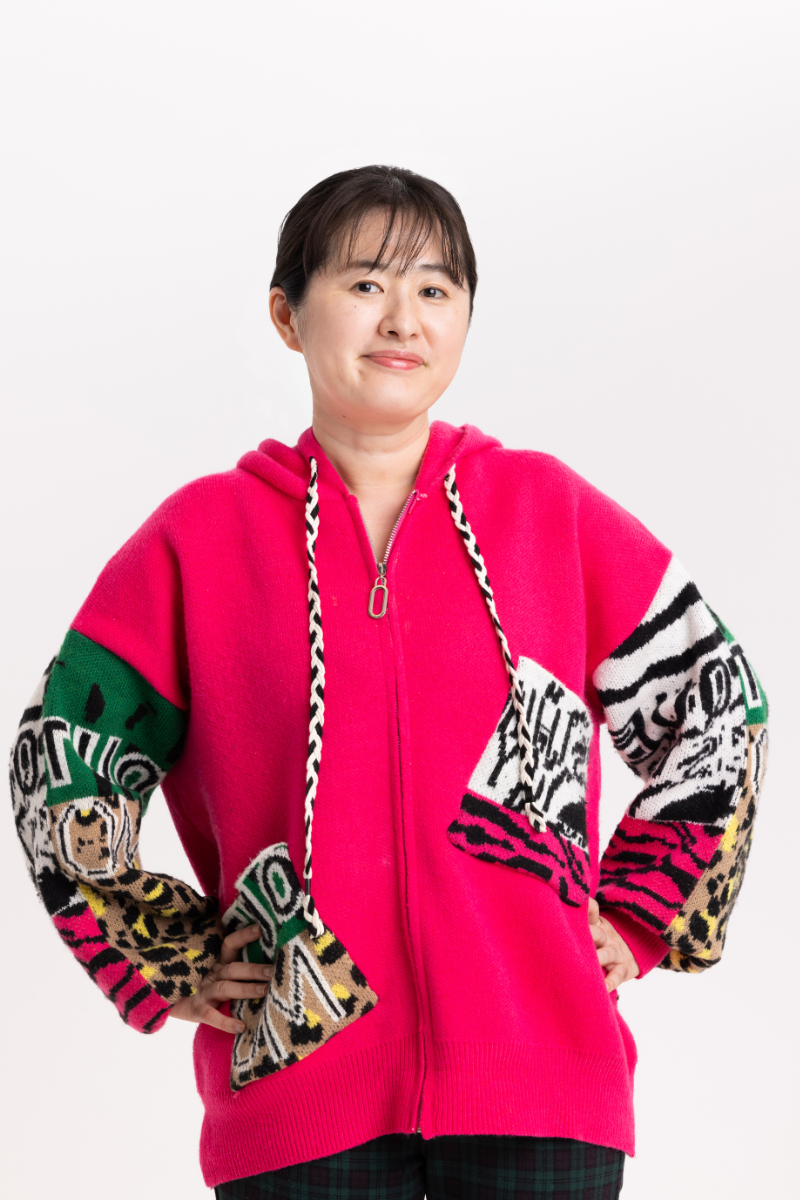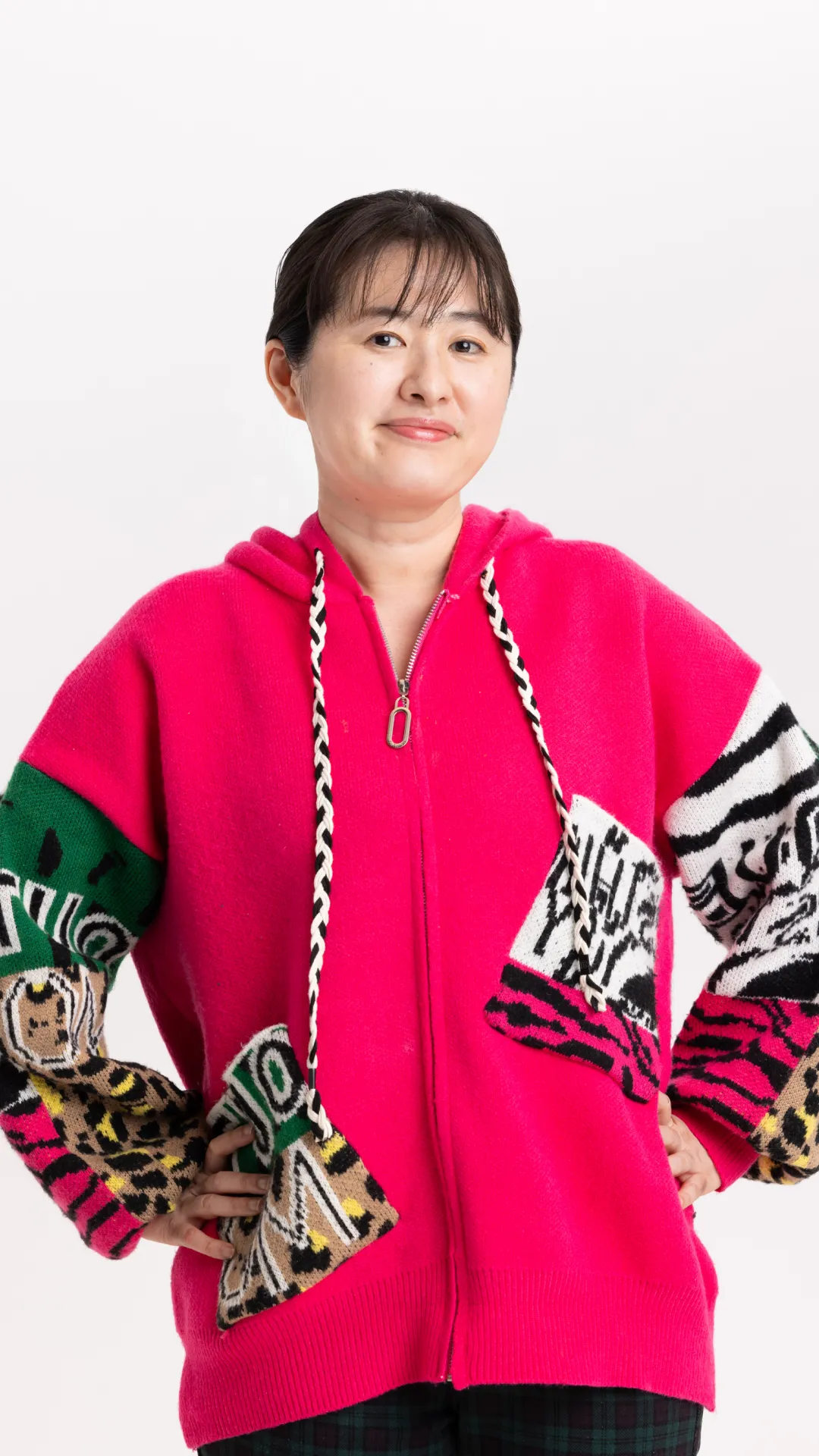INDEX
Navigating the Struggles of Three Characters and Their Personal Sense of Comfort
What inspired the character development approach?
Yuzuki: When I began writing, I had a vague idea of crafting a novel that would be popular. I thought, “This could win an Award!” I figured that stories with bad endings, or ones where characters can’t meet again, tend to be highly praised in literature, so I was aiming to make someone disappear. But as I started writing, the direction of the story changed. I came up with an ending that I thought would shock everyone, but then I started questioning if it would bring happiness to Rika and the others, or if it would satisfy Kajimana.
Even though it evolved differently from your original idea, you let the story lead, which ultimately brought you to the turkey ending.
Yuzuki: Exactly. I really wanted to write about cooking.
I absolutely love the turkey ending.
Yuzuki: When the book was first released, it actually received quite a bit of criticism. One of the critics was a well-known comedian who loves books; he mentioned on a show that he didn’t like the ending, and I thought, “Oh no…” But it turns out, Dua Lipa really likes the book.
Wait, that Dua Lipa??
Yuzuki: Dua Lipa is a big reader, especially a fan of Japanese authors. So, what I want to tell women in Japan who might be doubting themselves is that even if Kaz Laser finds it boring, Dua Lipa would say, “This is fantastic.” Even if it doesn’t work here, I’m showing that there’s a world where Dua Lipa would praise you.n’t work here.
It’s amazing.
Yuzuki: In Japan, there are certain styles or behaviors that can be seen as uncool or unacceptable if you’re not following the crowd. But I want everyone to remember that, even in that environment, there’s a chance you could be praised by someone like Dua Lipa. When you keep that in mind, it won’t matter if you’re not always the center of attention; in fact, it makes your uniqueness feel even more rewarding. Being included in Dua Lipa’s book list was truly a joy for me as a writer.
It’s hard to realize when you’re stuck in the same place, but sometimes what seems wrong from one perspective can turn out to be right when seen from another.
Yuzuki: I’ve often written in my novels, “The judgment here isn’t everything,” but I used to feel insecure about not being successful in Japan, which made me doubt my own message. However, after releasing BUTTER and seeing it translated, it gained so much popularity that it even reached a point in India where elephants became a part of the buzz!
That’s quite the extravagant reception! [laughs]
Yuzuki: I became so popular, it felt almost like a joke, and being in that kind of environment made me feel like the message I’d been sharing—”the judgment here isn’t everything”—started to feel less impactful. But moving forward, I believe what I have to share will be much stronger, so I hope people will stay tuned.
Has your experience overseas expanded your perspective? Are there any new ventures you’re interested in pursuing?
Yuzuki: I know Japanese authors who write novels with feminism as a foundation, and I often wonder how they would be received if they marketed their works as cool in places like London, just as Seiko Tanabe did, even though her books aren’t specifically categorized as feminist. I have a feeling they would do incredibly well. So whenever I have the opportunity to speak at events, I always make sure to say, “This person might be the next one to succeed internationally.”
Can you give some examples of the names you’ve mentioned?
Yuzuki: I see girls’ literature as the first genre to bring feminist themes like sisterhood into the mainstream, so I often talk about Nobuko Yoshiya, who has been telling women’s stories for years.
Also, since fantasy novels are very popular in the West, I believe authors like Sachiko Kashiwaba, whose work The Marvelous Village Veiled in Mist is said to have inspired Spirited Away, and Naoko Awa, could really gain recognition. It would be wonderful if someone could translate Naoko Awa’s beautiful, rhythmic prose into English.

























